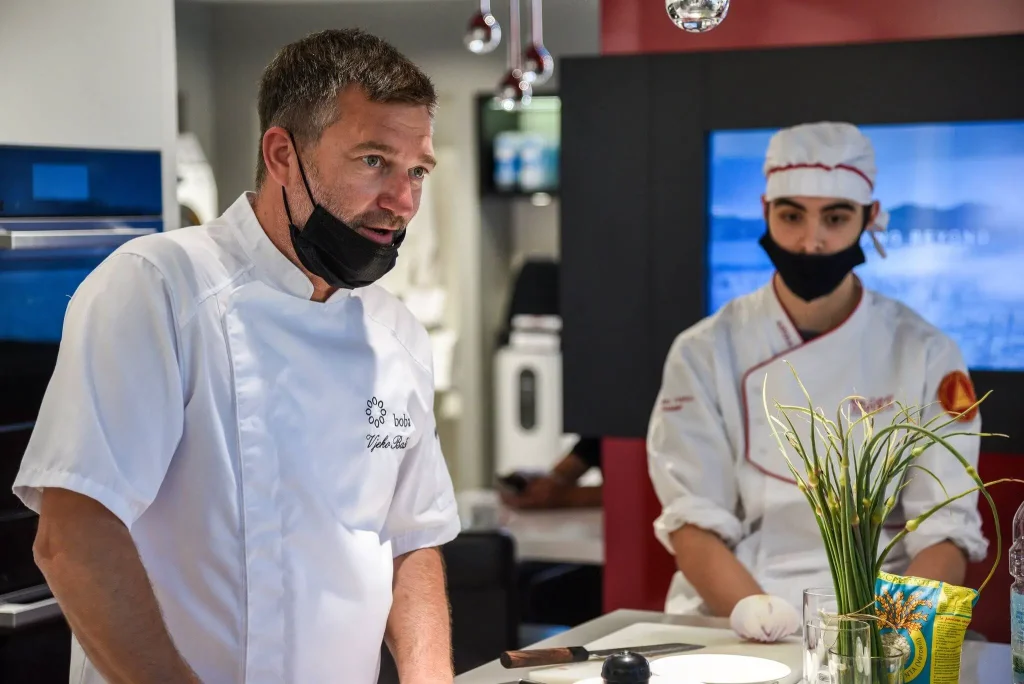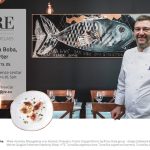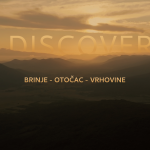JRE Croatia is a part of the Jeunes Restaurateurs which is an international association of young outstanding restaurateurs and chefs across 15 countries all over the world. JRE chefs share remarkable culinary talent, a strong passion for gastronomy and sustainability, and the commitment to keep the authenticity of their own local produce, dishes, and tradition alive. The sophisticated and relaxing ambience of JRE restaurants and the delectable selection of gourmet food and top local and international wines never fail to provide their guests a memorable dining experience!
To promote the culture and diverse flora of Croatia, Chef Vjeko Bašić together with JRE Croatia conducted a masterclass in Split, Croatia featuring seasonal, rare, and native plants in Croatia. The masterclass was done in a fully-equipped and high-technology kitchen of Miele Experience Centar Split, with the intent to highlight “paski/pilci” or young garlic sprouts that grow abundantly and is used mainly in the islands of Pag and Kvarner. However, since Chef Vjeko Bašić hails from island Murter, he opted for an ingredient much closer to home – wild leeks. His class was attended by 4 outstanding young culinary students from Aspira and one intern journalist from Total Croatia News.
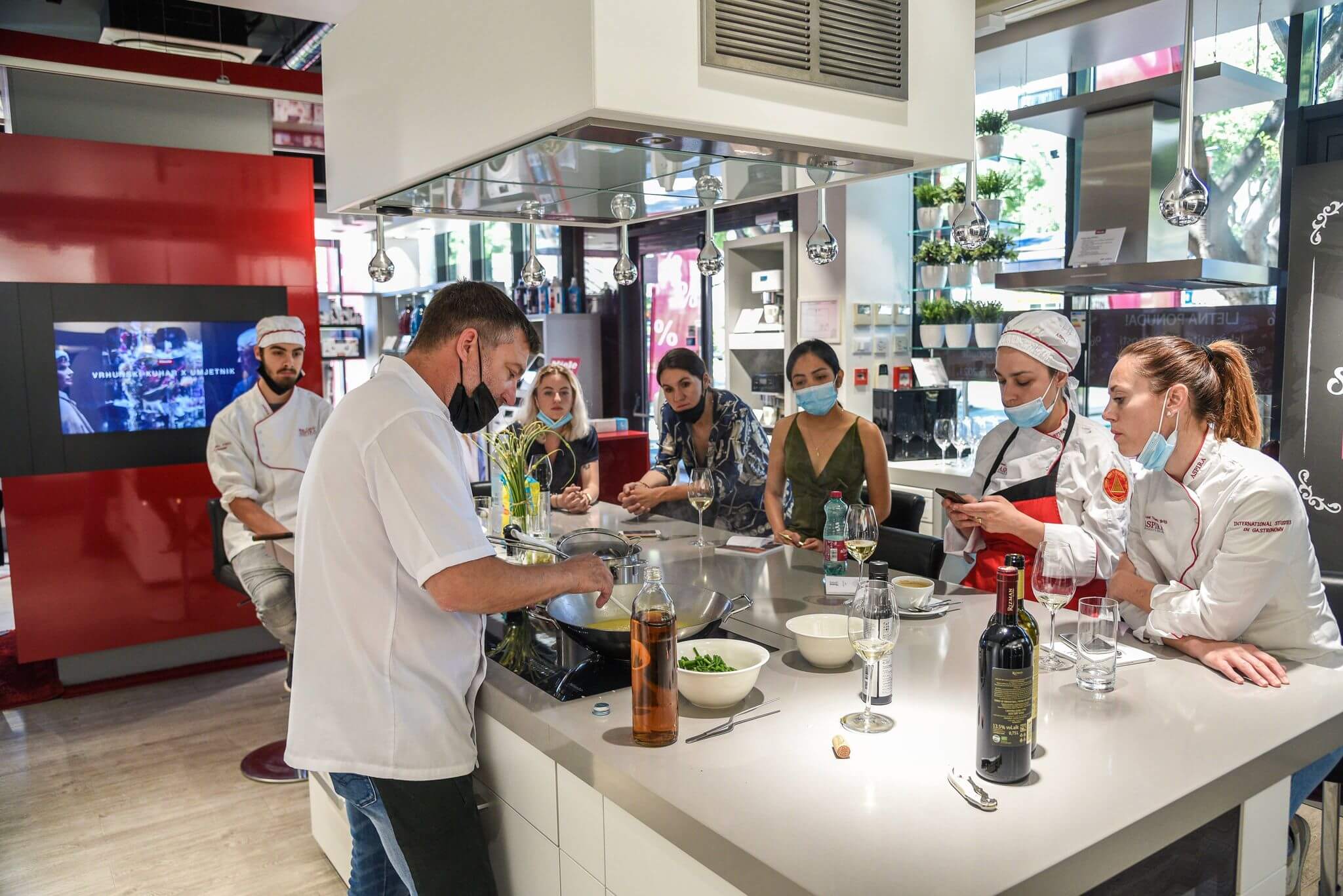
Masterclass in Miele Experience Centar Split by Chef Vjeko Bašić | Photo credit: JRE Croatia
Chef Vjeko Bašić is the owner of Konoba Boba, a fish restaurant located on the beautiful Murter Island in the Dalmatian region of Croatia. Konoba Boba is one of the 12 members and 4 honorary members of Croatian restaurateurs who have received membership in JRE Croatia. The name of the restaurant, Boba, is a family nickname that gives homage to the family’s rich stories and origin. The restaurant is deeply connected to the island and therefore, highlights the usage of fresh local produce from the sea and the land of Murter itself. To respect the natural rhythm of nature and its suppliers, Konoba Boba uses seasonal ingredients and creatively incorporates locally and freshly harvested produce from their region into their menu.
The chef chose to prepare wild leek risotto for the masterclass. “On my island, my father used to pick and cook wild leeks that grow outside our house.”, he fondly recalled his childhood in Murter. Prior to the class, Vjeko prepared chicken stock made with chicken, celery, leeks, onions, and carrots to be used for this special risotto. “For a good risotto, you need to have a good onion and olive oil.“, he emphasized. He made a unique pesto sauce for the risotto using “paski” (young garlic sprouts), pine nuts, and olive oil and he also offered his own pickled paski for the participants to taste.
According to Vjeko, paski, wild leeks and wild asparagus grow in the same season which is from spring to early summer. It can also be prepared in a similar style as wild asparagus salad which is to blanch the vegetables, mix with some salt, pepper, and boiled eggs and add a splash of olive oil and balsamic vinegar. In cooking wild leeks and paski, only the upper part is used and the lower part is discarded for its hard texture.
As Chef Vjeko prepares his dish, Irina of JRE Croatia, offered the participants two refined selections of wine – Pošip and Plavac Mali – both from Rizman winery. “A good wine is an important part of the food experience.”, Irina says as she pours each of the participants a glass of aperitif.
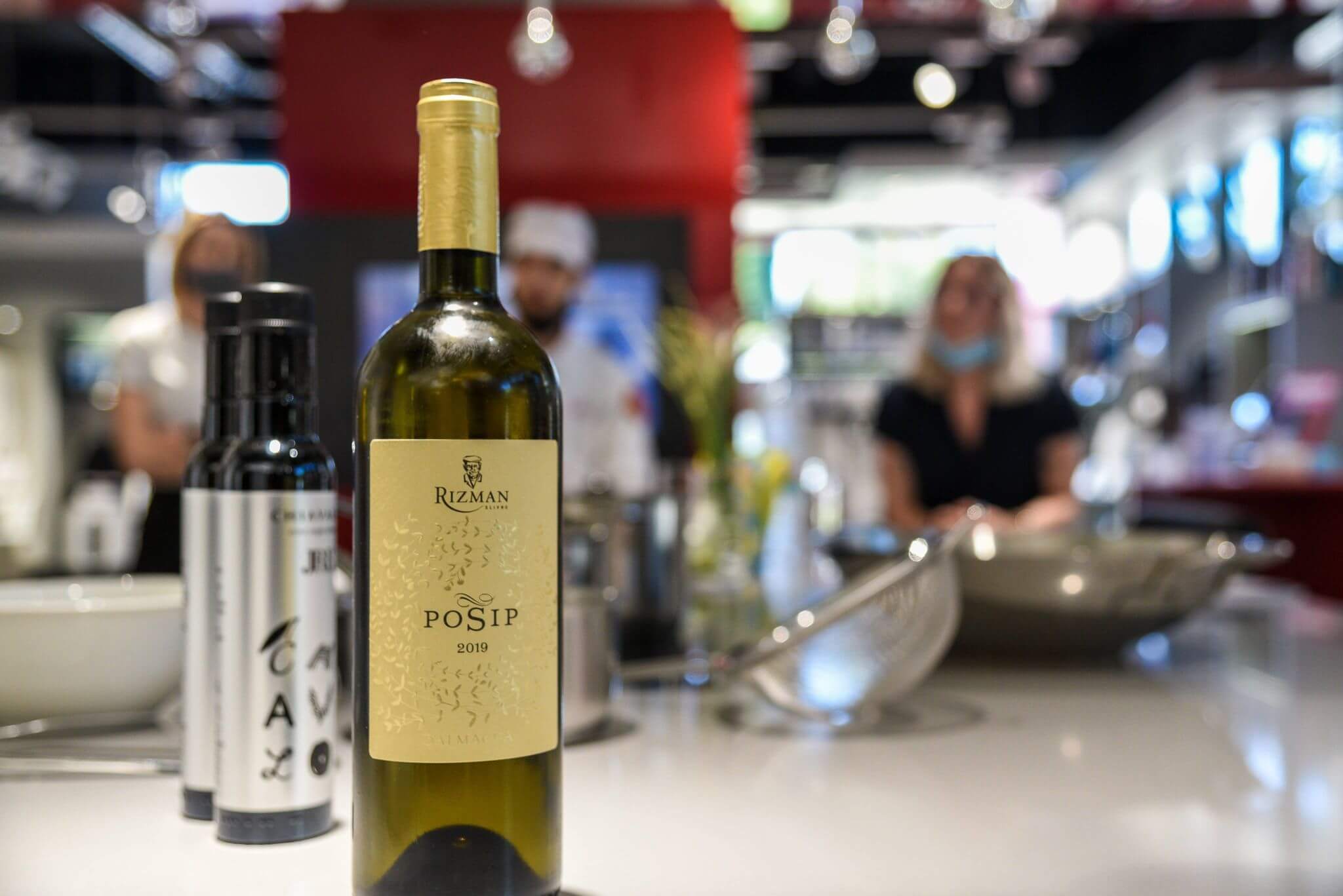
Photo credit: JRE Croatia
Rizman Winery, owned by the Stimač family, is situated in the youngest wine-growing area in Croatia which is called Komarna, in the Dubrovnik-Neretva County. The vineyards are located on a hilly area 250 meters above sea level and are close to the proximity of the sea and the famous valley of the Neretva river which provides good microclimatic conditions for wine cultivation. The wine-growing area features different soil compositions mostly of limestone and a tiny amount of organic matter, with 30% slope inclination and 2,600 hours of sunlight per year. Over 90% of vines in Rizman Winery belong to the indigenous varieties of Plavac Mali and Pošip and the rare grape variety of Tribidrag. The winery is a long-standing family tradition and the name Rizman is given to honour its founder – the grandfather and great grandfather of the Stimač family.
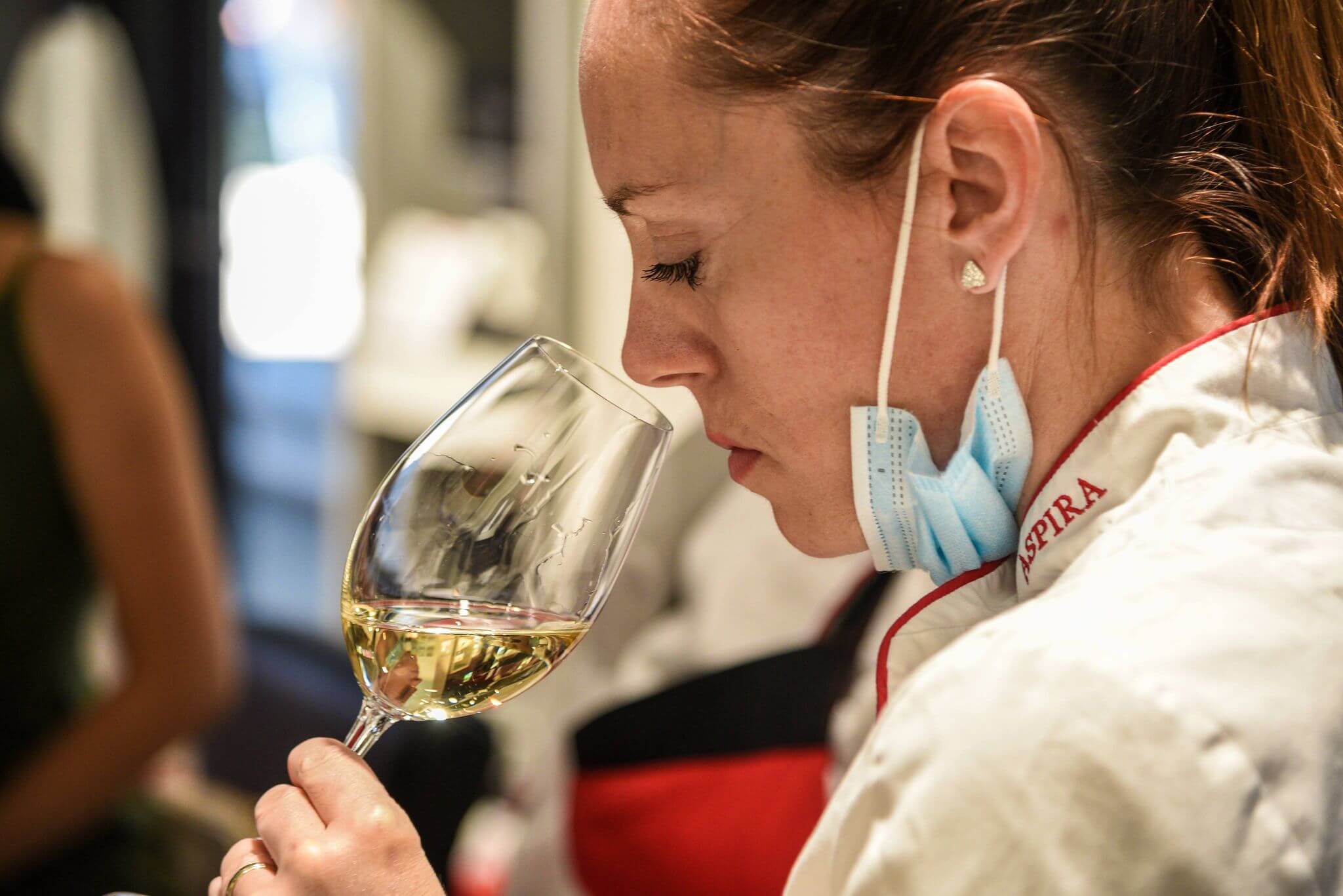
A culinary student of Aspira College savour the crisp and sweet aroma of RIzman’s Pošip served in a special Malvasia Istriana Glass | Photo credit: JRE Croatia
The drinks were served in Malvasia Istriana glasses which were created by Riedel, a major manufacturer of wine accessories, dedicated specifically for Croatia’s Malvasia Istriana (malvazia istarska). Malvasia is a type of wine grape with many varieties which includes Malvasia Istriana. It was a project initiated by Winemakers and Winegrowers of Istria – Vinistra Association to promote Istrian wineries and Croatian wine to the world. Nowadays, Malvasia Istriana glasses are called Superleggero Loire, because apart from pairing perfectly with Istrian Malvasia, it also pairs well with Sauvignon Blanc.
Chiavalon JRE olive oil was also used in the risotto. “Olive oil is very important to Mediterranean gastronomy”, said Irina. Because of its importance, JRE wanted to have good olive oil to use in their restaurants so they partnered with Chiavalon to produce a perfectly balanced olive oil for culinary use because a strong olive oil can overpower a dish and a neutral-tasting olive oil will not give authentic Meditteranean touch to the dish. Therefore, after harvest every year, JRE Croatia and its restaurateurs get together to conduct a blind taste-test sampling to choose the oil to be used by JRE. It is a Chiavalon and JRE co-branded product of olive oil which is only found in JRE restaurants. Irina shared a tip to everyone: “For olive oil lovers, Rizman olive oil is also of top quality.”
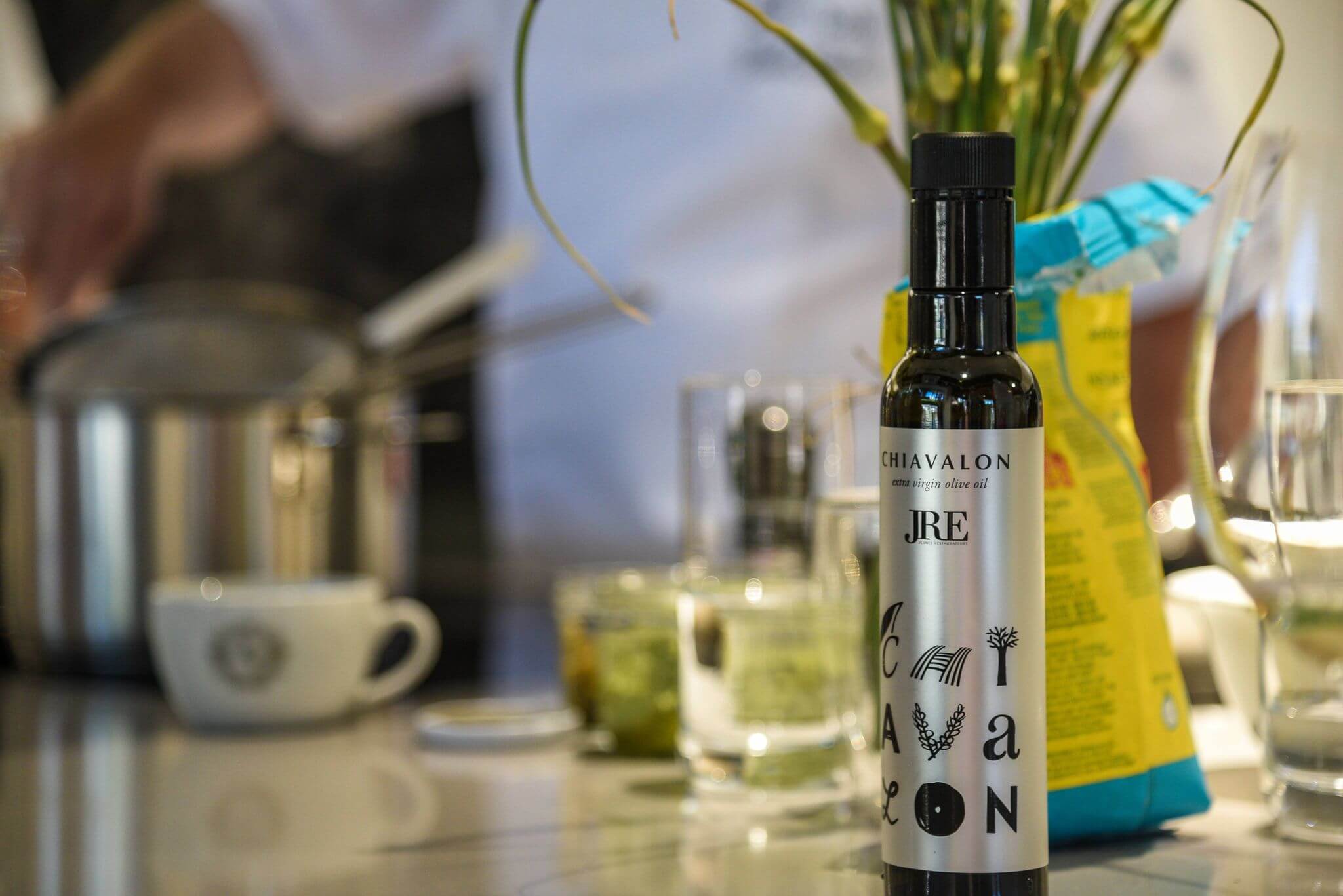
Chiavalon JRE olive oil | Photo credit: JRE Croatia
As always, every chef has a different method of cooking to bring out the best from their ingredients. “So when I cook risotto, I saute the onion in a pan, toast the rice in another skillet, and then I mix the onion with the rice after that”, says Vjeko. “Why do you that?”, asked one of the participants. “Because if I put the rice in the same skillet, the onion will burn.”, the chef answered and then humourously added, “But you need to use a lot of pans – and now is the worst time because I don’t have a sous chef with me.” In this dish, carnaroli rice was used because it is ideal for risotto. He also added the pesto sauce he made from paski or young garlic sprouts in the dish. “It is also important at the end risotto to add a bit of fat – it can be butter or it can be olive oil. This time, I combined both butter and olive oil”, he noted. To add acidity to the risotto, Chef Vjeko prefers to use a little bit of vinegar than the usual lemon.
After the risotto was ready, Chef Vjeko plated it beautifully and topped it off with crispy pancetta, some ricotta cheese, and homemade pickled paski. The crunchiness of the wild leek and the pancetta added a beautiful texture to the dish and the light tangy flavour from the pickled paski gave the dish a perfect balance of acidity.
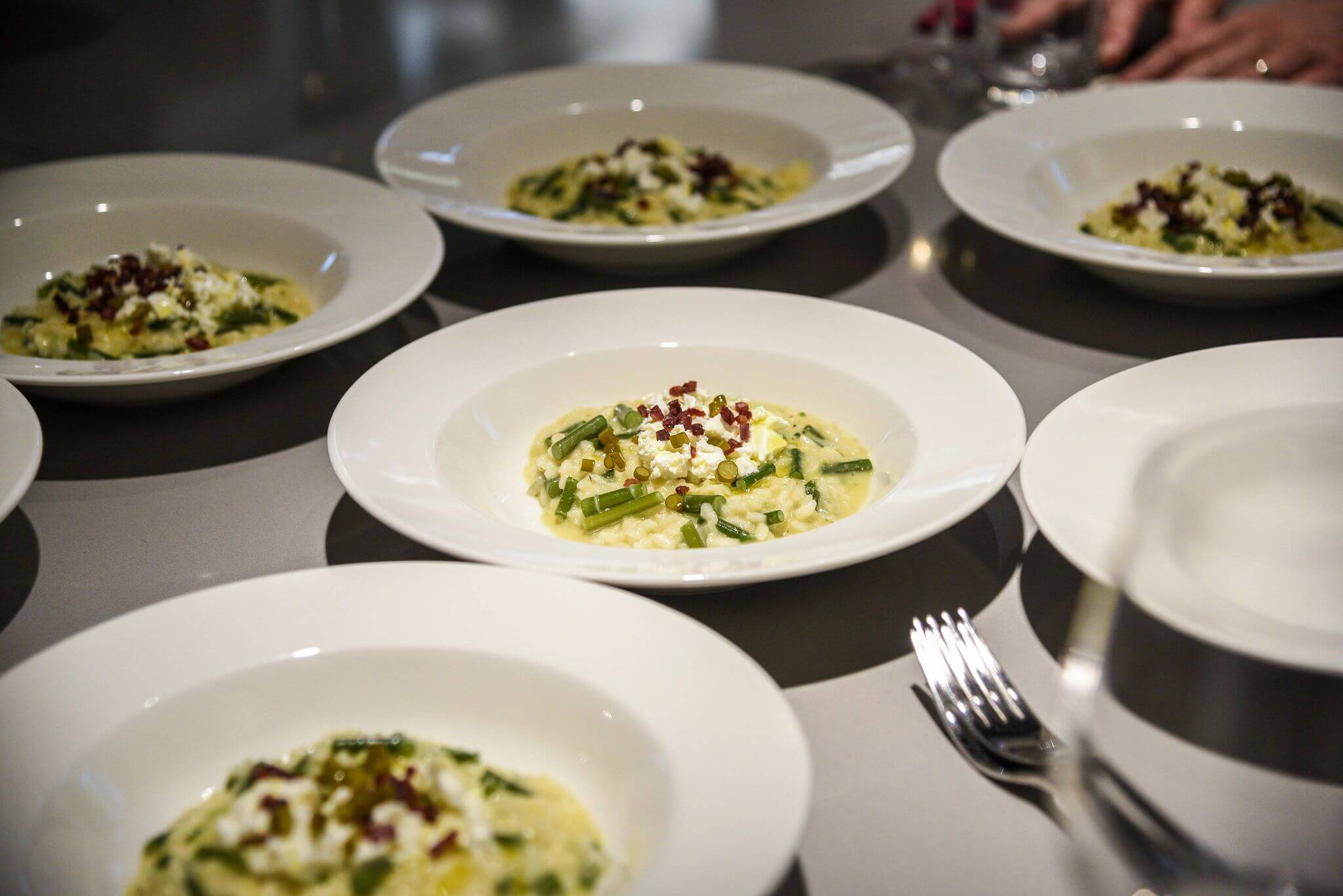
Chef Vjeko’s wild leek risotto | Photo credit: JRE Croatia
Hardships in gastronomic tourism in Croatia
As the participants enjoy the food, they shared about the current problems people in gastronomy face especially those living in the Dalmatian region. “There is a big problem in Croatia with the supply chain. There are small producers with good products but due to various economic problems, have difficulty supplying sufficiently, regularly, and efficiently because they can only sell as much as they can produce. This makes the life of the chefs, restaurateurs, and people in this industry difficult in Croatia,” according to Irina. Apart from the problem in the availability and regularity of supply of good quality ingredients, there is also a problem with manpower in this industry. “Although Croatia has excellent chefs and cooks, we are still new in the gastronomic scene and culinary schooling system compared to other European countries who have been a long-time destination for gourmands over the years. Because of this, JRE Croatia sincerely puts all their hopes to the young chefs of this country to help this industry succeed,” she added. The seasonal character of gastronomy in the Dalmatian region and the geographical location of Croatia is also one of the reasons why the prices of food are slightly higher than others. Since Dalmatia is harder to reach especially its islands, to get a regular supply of ingredients itself is costly. “This is the aim of JRE – to have our professional chefs and restaurateurs conduct events such as this to get publicity and make the consumers understand why chefs cannot prepare risotto in 5 minutes, and why the prices of the dishes are the way they are. They have to know how hard and costly it is to get a quality and regular supply of ingredients in Croatia”, Irina said.
One of the participants said that there is one restaurant in Zagreb that serves different menus every day using ingredients that are currently available. Chef Vjeko retorted, “You can do that in Zagreb because they have a full busy season throughout the year so the supplies are always coming unlike in Dalmatia, where the season lasts for only 3 to 4 months.” He then added, “You will see that when you start working in restaurants here, you, too, will experience the difficulty in getting food supply which usually starts to happen from the end of May onwards”. They also agreed that climate change greatly affects the production time, amount, and quality of produce. “In JRE, we also embrace sustainability. It requires knowledge to understand and respect nature and to know that we cannot have everything at great amounts whenever we wish. It is important to appreciate what we have when we have it”, Irina voiced out.
The Island of Murter, Konoba Boba, and Chef Vjeko Bašić
Also called the gate to the Kornati, Murter is an island national park and one of the pearls of the Adriatic Sea. It is a popular destination for people who love sailing and explore remote islands. Paklenica National Park is also nearby where one can enjoy sightseeing, hiking, and walking. Konoba Boba makes use of the richness of the Adriatic sea and serves an interesting selection of fresh seafood including roe, sea urchins, oysters, mortar, and salicornia. While maintaining their culture, Konoba Boba never fails to innovate and continuously elevates their dishes with new exciting elements! In addition to that, the restaurant offers 50 cozy interior dining seats and another 80 outdoor ones with a garden view filled with aromas of Mediterranean plants and trees including marjoram, basil, rosemary, immortelle, mint, fig, lemon, mulberry, olive and etc. which they incorporate in their dishes as well. Konoba Boba also has a wide array of wine selection carefully handpicked by the restaurant’s sommelier, Mateo Juričev Talijaš
Apart from the restaurant Vjeko is successfully running, he also has been pursuing his passion for olive oil production. “We have our olive garden with 2,000-year-old olive trees. In autumn and wintertime, we take care of the trees, harvest the olive, and produce our olive oil. This year, our olive oil received a silver medal and our family was very happy about it.”, he proudly said to the participants. In his spare time, he also loves to fish. “When I was a kid, I used to fish a lot with my father. But now that I started this business, I do not have much time for it. I would love to do it once more once I decide to retire from this industry.”, he added.
According to his wife, Chef Vjeko, who also serves as the Vice-President of JRE Croatia, is living his dream. With an award from the Gault&Millau Croatia 2018 Chef of the Year, a successful business on an island he deeply cherishes, and endless support from his loving families, peers, and community – we can all agree that he truly is living the dream.
For more information on Jeunes Restaurateurs’ affiliated restaurants and hotels, CLICK HERE.
For more on lifestyle in Croatia, follow TCN’s dedicated page.
For more about Croatia, CLICK HERE.

